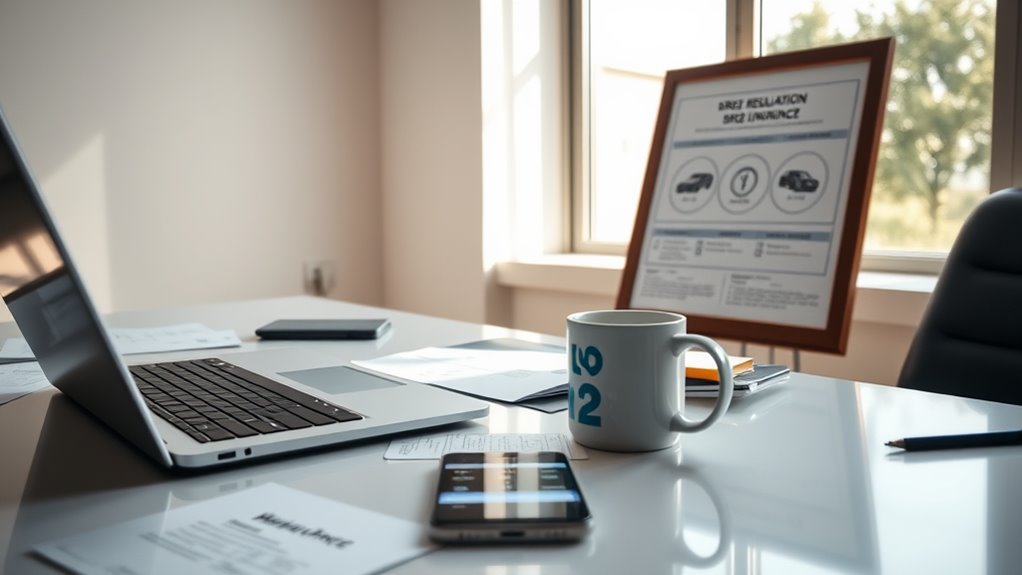State SR22 Regulations for Non-Vehicle Owners
If you've faced serious driving offenses, you might be aware of the SR22 requirement, but what if you don't own a vehicle? Non-vehicle owners must still navigate complex regulations to maintain compliance. This involves securing a non-owner SR22 insurance policy, which can be vital for your driving privileges. Understanding how this coverage works and its implications is necessary for avoiding further penalties. What specific steps do you need to take to guarantee compliance?
When you're a high-risk driver without a vehicle, understanding SR22 regulations becomes critical for reinstating your driving privileges. Non-owner SR22 insurance is specifically designed for individuals like you, often required due to serious driving offenses such as DUIs or multiple moving violations. States mandate these filings to guarantee that even drivers without a car maintain financial responsibility, acknowledging that you might still operate non-owned vehicles.
To qualify for non-owner SR22 insurance, you typically need to have a history of significant infractions. If your license is suspended or if you've been involved in accidents without adequate insurance, you're likely in the market for this type of coverage. Habitual traffic offenders, particularly those who've accumulated too many points on their driving record, also fall into this category. By meeting these eligibility criteria, you can begin the process of reinstating your driving privileges.
Qualifying for non-owner SR22 insurance often involves a history of serious driving infractions and license suspensions.
The coverage provided by non-owner SR22 insurance focuses primarily on liability. This means that while you're driving borrowed or rented vehicles, the policy covers you against claims made by others, up to the limits you've purchased. However, it doesn't cover any physical damage to the vehicles you drive. Typically, this insurance acts as secondary coverage, meaning it kicks in after the vehicle owner's primary policy. This structure often makes non-owner policies more affordable compared to traditional SR22 options, and this insurance is necessary for ensuring compliance with state regulations.
Each state has its regulations regarding the duration of coverage, commonly ranging from three to five years. During this time, maintaining compliance is essential; failure to do so can result in severe penalties, including license suspension or fines. It's important to remember that the SR22 form serves as proof of your financial responsibility, a requirement enforced by the state even though you don't own a vehicle.
Cost considerations play a significant role in your decision-making process. Non-owner SR22 insurance is generally less expensive than policies for vehicle owners, but you'll still need to account for the insurance premiums and filing fees. Typically, you might expect to pay between $15 and $25 monthly more than standard non-owner policies, though this varies by state and individual circumstances.
Obtaining non-owner SR22 insurance requires you to engage with high-risk insurance providers that specialize in these policies. To secure the best rates, it's wise to shop around and compare quotes from multiple companies. The insurance provider will handle the SR22 filing with your state's DMV, but it's important to verify that you choose a reputable company experienced in high-risk policies.
Throughout this process, your goal should be to meet all state regulations, guaranteeing that you remain compliant and can regain your driving privileges promptly.
Conclusion
In summary, maneuvering the maze of SR22 regulations as a non-vehicle owner can feel overwhelming, but it's essential for regaining your driving privileges. By securing a non-owner SR22 policy, you're not just ticking a box; you're building a safety net that protects you and others. Think of it as planting a seed—nurturing your financial responsibility will ultimately lead to a healthier driving future. Stay compliant, and you'll find your way back to the open road.
